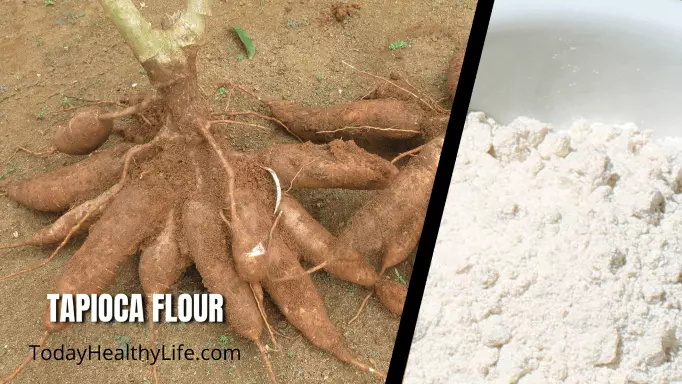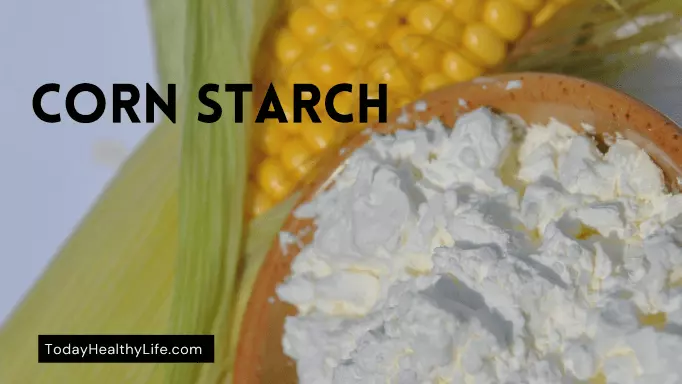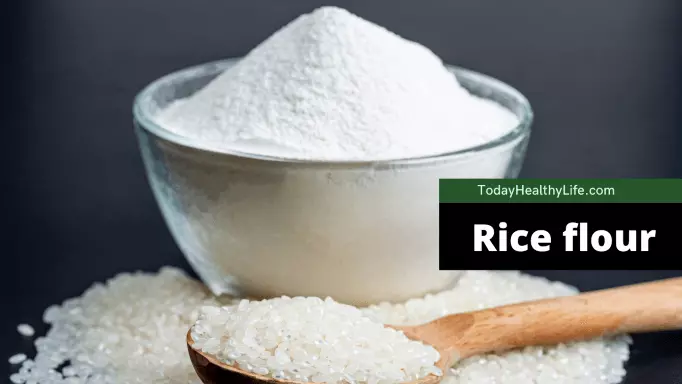Tapioca flour is one kind of flour that you won’t see in every pantry. Mainly you can see tapioca flour get used for thickening gravy, soups, sauce, and baking goods.
Since this flour doesn’t contain any gluten, bakers are making tapioca flour-based bread and desserts. Tapioca desserts are popular because they give a pleasant chewy feeling to the mouth.
It is wheat flour and starch alternative. You will find it in many recipes. However, fine white tapioca flour is a flavorless and tasty addition to both sweet and savory dishes.
People who are not familiar with tapioca flour. Tapioca flour is gluten-free baking and cooking ingredients. If you don’t have access to tapioca flour, you can use its substitute. Unfortunately, tapioca flour is not for the ketogenic diet.
Read on to know more about tapioca flour. This article will provide you with tapioca flour substitutes that work best, and the answer is keto-friendly or not.
Let’s get started.
Table of Contents
What is tapioca flour?

So, what is tapioca flour precisely?
Tapioca flour comes out from the cassava roots of plants. Cassava is a tuber that may be commonly grown and is a common ingredient in Southeast Asia, Africa, and South America.
It looks like a sweet potato on the outside, although it has pretty thick skin and white flesh. Tapioca flour also has twice as many carbs as sweet potato and twice as many calories.
Basically, crushing or processing cassava releases the fluid inside, which becomes flour. The mixture is then let to sit once all of the liquid has dried, generating a fine white powder remaining.
In some cases, it’s available as finer flakes. Tapioca flour and tapioca starch are two different terms for the same thing. It tastes like cornstarch and has a similar composition.
Moreover, tapioca flour is a common additive in gluten-free recipes, and it’s especially useful for improving the color and texture of baked items.
Also read: What is millet flour– is it gluten free, nutrition, substitute & all.
What is finger millet flour? nutrition, benefits & side effects.
Tapioca flour substitute
Tapioca flour is a multipurpose component in the kitchen. It’s most commonly used to give baked foods a crunchy exterior or a chewy consistency.
As well as cookie dough and sauces, gravies, and sweets made with cream, tapioca flour thickens them.
There are a few substitutes for tapioca flour if you don’t have any available. Here is a list to get more details on that.
1. Cornstarch

Cornstarch is a tapioca flour alternative that you likely have in your kitchen and can use to thicken soups and stews. It’s crucial to distinguish between cornstarch and cornflour.
During the milling process, corn kernels are dried and finely ground. The edible part of the kernel is what makes cornstarch. Cornstarch is inherently gluten-free, making it a better choice than tapioca flour.
However, just remember that cornstarch has twice the thickening capability of tapioca flour, so use caution when replacing it.
2. Potato starch
Potato starch is a wonderful substitute for smoothing sauces because it contains moisture well. It can be used straight in place of tapioca flour while thickening a sauce.
Potato starch, on the other hand, isn’t always the ideal option for baking. It has a thicker texture than tapioca flour. Thus, baked items will seem thicker.
During baking, potato starch must be used sparingly in comparison to tapioca flour.
Additionally, substitute equal measures potato starch and tapioca flour for a little quantity of thickening in a soup or sauce.
If you apply a 1:1 ratio, your baked items will be considerably thicker. Therefore, use a mixture of 25 to 50% potato starch and also another flour.
3. Rice flour

Rice flour, produced from finely ground rice, performs well as a tapioca flour alternative in baked products. Rice starch, on the other hand, is made by cooking rice in lye.
It has a moderate texture, making it simple to operate with and unaffected by the finished item’s flavor.
Only one issue is that rice flour is a little stickier than regular flour. You’ll need to keep an eye on the mix proportion because it has a larger thickening tendency.
Like most recipes, beginning with half a cup and increasing more as needed is a reasonable strategy.
4. Cassava flour
Cassava flour is a gluten-free alternative to tapioca flour that is rich in fiber and therefore more highly nutritious.
Even though both items get manufactured from the cassava root, cassava flour contains all the necessary roots. Nevertheless, tapioca flour merely contains the plant’s starch.
For most dishes, cassava flour works as an alternative to tapioca flour. Due to the fiber loading, it has a slightly higher thickening ability.
If you cannot locate cassava flour locally, you can purchase it online.
5. All-Purpose flour
A wide variety of dishes get prepared with all-purpose flour and most other uses for tapioca flour. Refined flour or simply flour are other names for it.
Grinding, purifying, and lightening skinned wheat grains produces all-purpose flour.
As a substitute for tapioca flour in baked goods, all-purpose flour is a good choice. Unfortunately, because all-purpose flour contains gluten, gluten-free recipes cannot use it.
But it has a pungent flavor that you’ll want to smooth out in your dish. So, if you are using it for thickening the dishes, then increase the proportion and cooking duration.
6. Arrowroot
Similar to tapioca flour, arrowroot gets classified as either starch or flour. It is gluten-free, tasteless, and even has a consistency close to tapioca flour.
In the thickening process, such as slow cooking, you can make an even switch.
When baking, combine arrowroot with some other flour or starch rather than using it in place of flour or starch. Only using arrowroot will make your baked goods overly thick.
7. Tapioca Starch
The terms tapioca flour and tapioca starch mean the same thing. Before you go outside to purchase some, double-check your kitchen. It’s conceivable you had tapioca starch on hand but overlooked it when looking for flour.
In the tropics, tapioca flour is often referred to as tapioca starch since it contains starch. Some companies market the product as tapioca starch, while others sell it as tapioca flour.
Moreover, because they’re the same item, you can use them interchangeably in any recipe.
Also read: Spelt flour substitute | Is Spelt flour gluten free?
Is tapioca flour keto?
Nowadays, ketogenic has become a popular diet. People are choosing the keto diet as a healthy lifestyle. So, now the question arrives, is tapioca flour keto-friendly?
Regrettably, tapioca flour is not keto.
Although tapioca is paleo and whole30 certified, it is not keto suitable. Due to its composition of carbohydrates and lack of protein, tapioca already provides a small number of nutrient benefits.
As a result, tapioca flour is incompatible with those on a ketogenic diet, which emphasizes high protein intake and low carb intake.
Further, some store-bought keto-approved products list tapioca fiber as a keto-fiber additive. The starch element of this substance gets reduced by enzymes to make it a binding material and sweetener.
The tapioca by-product appears keto-friendly, but it lacks nutritional value.
Side effects of tapioca flour
Tapioca has only a few recorded negative impacts. Several scholars, too, concur that more investigation is necessary.
One of tapioca flour’s drawbacks is that it is primarily composed of carbohydrates. It suggests that individuals with diabetes should minimize their intake of tapioca-based products.
Also, tapioca flour has a high-calorie content. As it’s heavy in carbohydrates but poor in nutrients, this could sabotage certain people’s diet and weight and health goals.
However, tapioca flour comes from cassava roots. And consumption of improperly processed cassava can result in cyanide poisoning, as per the Centres for Disease Control and Prevention.
Conclusion
Tapioca flour is a popular common gluten-free baking and cooking ingredient. Do not worry if you don’t have this in your kitchen. We tried to put every possible substitute that can perform like tapioca flour.
In this full article, you will get all your doubts clear about tapioca flours, alternatives, and being keto-friendly or not.
